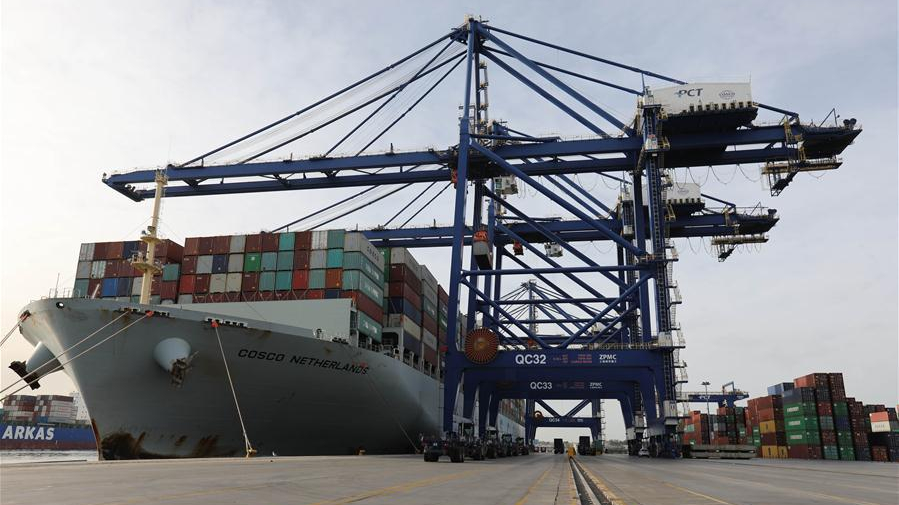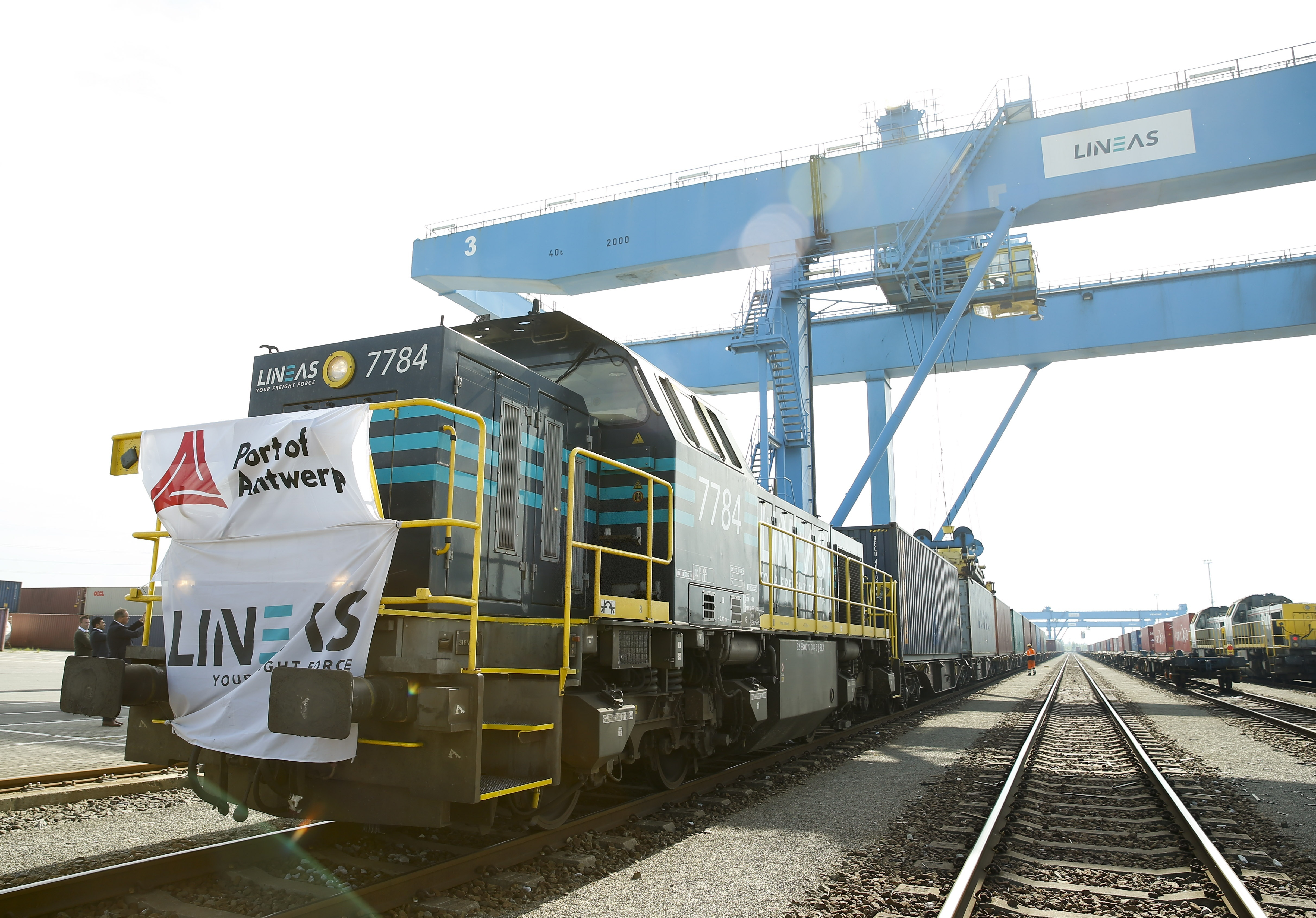
Photo shows bridge cranes unloading goods from the merchant vessel and loading goods to the vessel at Port of Piraeus, Greece, May 7, 2017. /Xinhua Photo
Photo shows bridge cranes unloading goods from the merchant vessel and loading goods to the vessel at Port of Piraeus, Greece, May 7, 2017. /Xinhua Photo
Editor's note: Andrew Korybko is a Moscow-based American political analyst. The article reflects the author's opinion, and not necessarily the views of CGTN.
The General Administration of Customs of China (GACC) published China's Total Export & Import Values of 2019 on January 14, revealing mixed results from Trump's trade war. The U.S. president wanted to reduce the trade deficit with China, but trade ties between the two countries still remain strong.
The figures show that the U.S. was actually China's third-largest trade partner, trumped by the European Union (EU) and the Association of Southeast Asian Nations (ASEAN). Moreover, last year, China's foreign trade grew by 3.4 percent, exports by five percent, imports by 1.6 percent, and the trade surplus increased by 25.4 percent.
Trump clearly can't proclaim full victory, but neither can his opponents claim that he was fully defeated. Rather, the nature of U.S.-Chinese trade ties simply showed signs of changing last year, which may or may not be the beginning of a new trend. Their decision to commence the "phase one" of a more comprehensive trade deal will add more certainty to their relationship and reduce the chances of any other sudden uncertainties, especially seeing as how those that already occurred were manageable despite the trade war climaxing.
Much has been said about how the U.S. endeavors to shift its supply chains away from China, but it's too early to tell if those highly touted efforts have amounted to anything other than rhetoric, let alone of meaningful consequence.
On the contrary, the U.S. claims that it hasn't been adversely affected by the trade war, but once again, it might take time to discern if there was any noticeable impact regarding modified consumer habits and overall confidence in the commercial sector of the economy.

The China-Europe freight train from Tangshan arrives at Antwerp Port, Belgium, May 12, 2018. /Xinhua Photo
The China-Europe freight train from Tangshan arrives at Antwerp Port, Belgium, May 12, 2018. /Xinhua Photo
One of the unintended consequences of the trade war, however, was the improvement of Chinese-EU economic relations over the past year. Not only can it be said that China chose to concentrate more on this partner in response to the U.S.' unilateral actions, but one can also assert that the EU was more than willing to reciprocate because of the comparative loss of confidence that it experienced in the U.S. Trump dropped some strong hints that the EU might be his next target after China, so it's understandable why they'd want to hedge their bets.
America's protectionist policies created a lot of global economic uncertainties because they went against globalization that the U.S. itself had once spearheaded. Under those conditions, it's natural that China and the EU -- two of the world's most important supporters of globalization -- would come closer together in response so as to stabilize the world system that they all invested so much time, effort, and money into building since the end of the Cold War.
That explains the eagerness of many EU states to participate in China's Belt & Road Initiative (BRI) since this worldwide series of connectivity projects and other related investments is intended to strengthen globalization, which becomes all the more important in the face of the U.S.' protectionist challenge.
That trend is expected to intensify across the coming years except in the scenario where the U.S. successfully pressures its partners to distance themselves from China, though the latter is unlikely since they'd be sacrificing their own self-interests.
As for the U.S.' future interests, it's too hard to tell since they'll be greatly determined by the outcome of the upcoming presidential election. If Trump wins, he'll probably continue with his protectionist policies, though they might not be as severe as the initial ones during his first term if he continues to negotiate a more comprehensive trade deal with China in good faith. Should that be the case, then it's predicted that the trade surplus will gradually be reduced, though not in any dramatic way and only to a certain extent.
Taken together, Trump's trade war had mixed results. It succeeded in reducing some of the U.S.' trade deficit with China, though not completely like he anticipated. His unilateral economic moves also had the consequence of strengthening Chinese-EU trade ties by incentivizing the latter to sign on to BRI because many of its members have more certainty in its globalization vision than in the U.S.' protectionist one.
Going forward, the U.S. will continue to pursue protectionism, albeit mildly, while China will continue apace with globalization.
(If you want to contribute and have specific expertise, please contact us at opinions@cgtn.com)